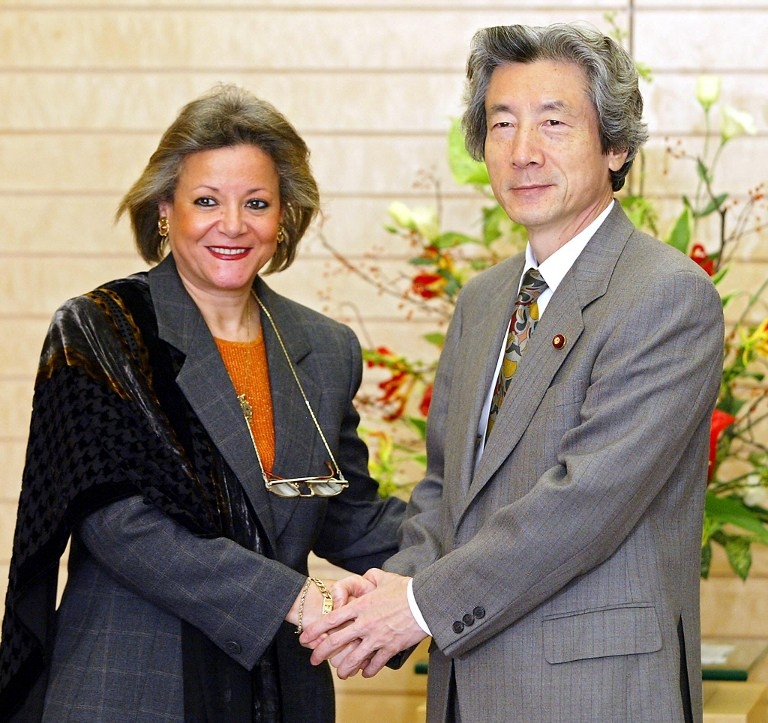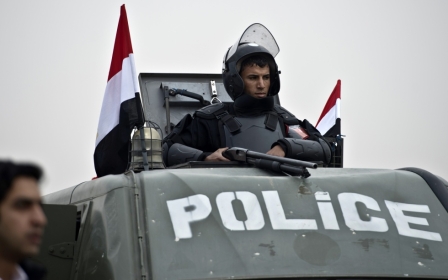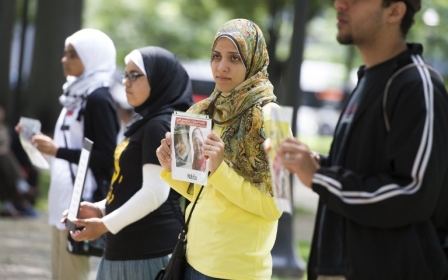Egypt elevates former Mubarak minister amid fears of NGO clampdown

President Abdel Fattah al-Sisi appointed a politician who served as a minister under former president Hosni Mubarak, and led criminal charges against American non-profit groups, as his national security advisor on Wednesday.
The new advisor, Fayza Abul-Naga, accused non-profit workers in Egypt – including 19 Americans – of being agents of a US plot to destabilise the country in 2012 leading to the most serious fallout in Cairo’s 35-year-old alliance with Washington.
Abdul-Naga’s appointment, analysts say, reflects President Sisi’s growing disregard for Egypt’s relations with the US and a deep distrust of civil society groups.
“It will complicate already complicated US-Egypt relations,” said Michael Hanna, an Egyptian-American researcher at the Century Foundation, based in New York. “It tells us a lot about the Egyptian government’s attitude toward the civil society sector which is one not simply of suspicion but a warped belief that it poses a threat to Egyptian national security.”
Abdul-Naga, a minister who coordinated international aid and was for a long time the most powerful woman in the Egyptian government, survived a series of cabinet purges after Hosni Mubarak was toppled in 2011 but was replaced in August 2012 when deposed president Mohamed Morsi, leader of the now banned Muslim Brotherhood, appointed his first cabinet.
The judicial probe she led into foreign-funded civil society groups resulted in three American nonprofit groups (the International Republican Institute, the National Democratic Institute and Freedom House) having their offices raided by police who seized computers and documents, and placed travel bans on their employees.
Abul-Naga accused the organizations of participating in a scheme by the American government and Israel to stir unrest in the streets.
"The US and Israel could not create a state of chaos and work to maintain it in Egypt directly, so they used direct funding to organisations, especially American, as a means of implementing these goals," the official MENA news agency quoted her as saying.
Robert Becker, a former election observer and one of 16 Americans charged in the 2012 NGO trial, said things had gone from bad to worse for civil society organisations in Egypt.
“They are going after all kinds of NGOs,” Becker told Middle East Eye via Skype. “Let’s be clear it is more than just Abul-Naga; the head of army intelligence at time of the raid on my office was Abdul-Fattah al-Sisi."
Activists and civil society figures in Egypt seemed dismayed by the return of Abdul-Naga, a figure widely associated with the Mubarak era and who some fear now intends to dismantle rights groups which played a role in toppling the longstanding autocrat in 2011.
Egypt recently announced a deadline of 10 November for full compliance with a 2002 law requiring all NGOs in Egypt to register with the Ministry of Social Solidarity, a ruling organizations say violates their independence.
Several rights advocates have left the country for fear of arrest. Many who remain say they fear their organizations may soon be shuttered.
Middle East Eye propose une couverture et une analyse indépendantes et incomparables du Moyen-Orient, de l’Afrique du Nord et d’autres régions du monde. Pour en savoir plus sur la reprise de ce contenu et les frais qui s’appliquent, veuillez remplir ce formulaire [en anglais]. Pour en savoir plus sur MEE, cliquez ici [en anglais].




